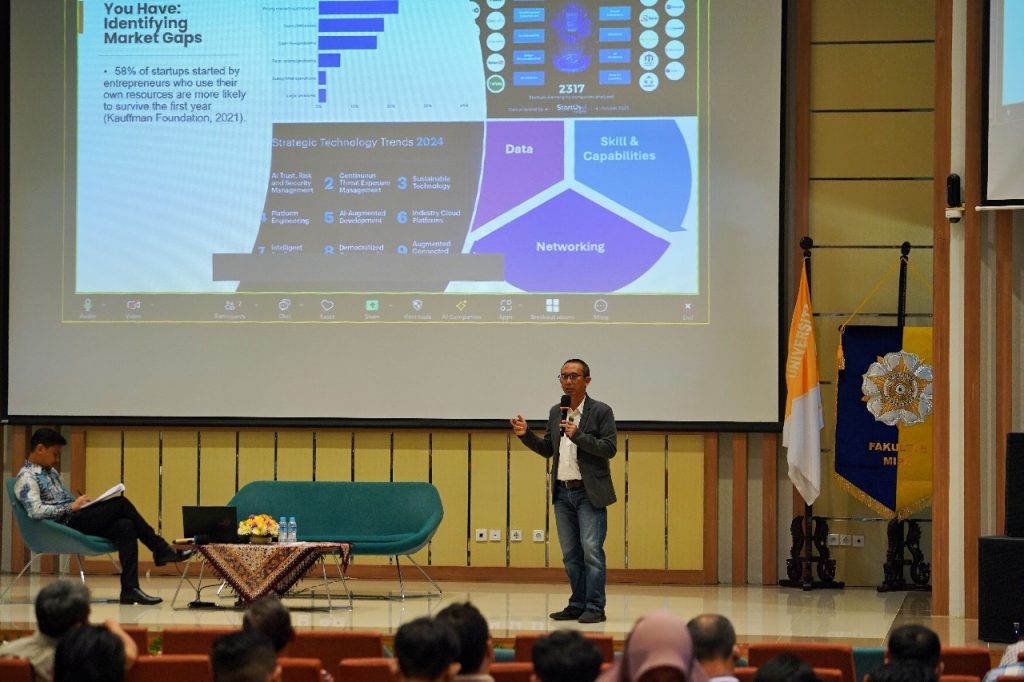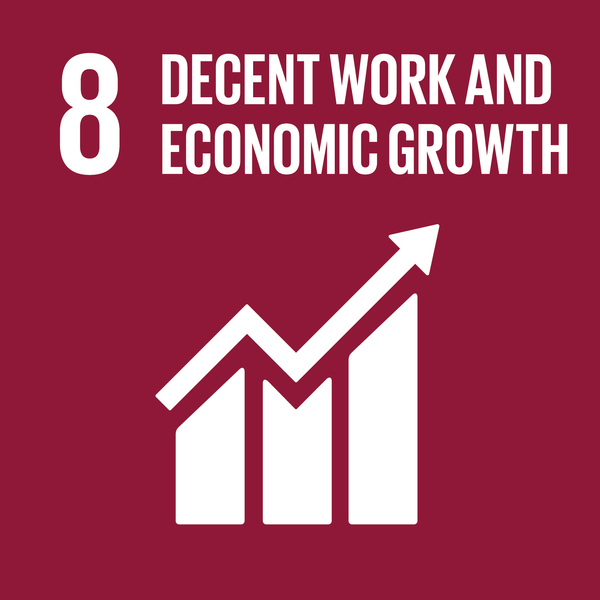 On Friday, October 18, 2024, the Faculty of Mathematics and Natural Sciences (FMIPA) at UGM hosted the Jogja Innovator Summit, an event that combines technological innovation with the latest industry insights. Held at the FMIPA UGM Auditorium, the event featured experts from various sectors who shared their knowledge and experiences. One of the sessions that captured attention was the second session, themed “How to Create Products That Are Widely Adopted in the Industry,” presented by Prasetyo Raharjo, Senior Manager of Digital Platform & Digital Service at Telkom Corp.
On Friday, October 18, 2024, the Faculty of Mathematics and Natural Sciences (FMIPA) at UGM hosted the Jogja Innovator Summit, an event that combines technological innovation with the latest industry insights. Held at the FMIPA UGM Auditorium, the event featured experts from various sectors who shared their knowledge and experiences. One of the sessions that captured attention was the second session, themed “How to Create Products That Are Widely Adopted in the Industry,” presented by Prasetyo Raharjo, Senior Manager of Digital Platform & Digital Service at Telkom Corp.
Prasetyo also highlighted the importance of companies having a high sensitivity to various types of data—whether market data, partner data, or internal data. Mastery of data is key to making strategic decisions in the rapidly evolving digital era. In this context, mathematics graduates with strong analytical skills have significant opportunities to contribute meaningfully to the development of data-driven innovations.
Prasetyo emphasized that graduates from FMIPA UGM, especially those with a mathematics background, have great potential to become drivers of innovation in the technology industry. “With an understanding of mathematics, we can analyze data more carefully and make better decisions based on that data,” he explained.
The application of mathematics is not only crucial for technological innovation but also aligns with the achievement of the Sustainable Development Goals (SDGs). For example, in SDG 9 (Industry, Innovation, and Infrastructure), mathematics and data analysis play a vital role in creating sustainable innovative infrastructure. Additionally, the proper use of data contributes to SDG 8 (Decent Work and Economic Growth), where innovation in the startup sector can create new jobs and support inclusive economic growth.
This session provided participants with in-depth insights into how sustainable product innovation can be achieved through a profound understanding of data and mathematics. With strong education from FMIPA UGM, academics, students, and alumni are expected to become innovation leaders in the technology industry while contributing to the achievement of SDG targets, creating products that are not only widely adopted in the market but also sustainable and supportive of social well-being.

 Keywords: Innovation, Industry, Mathematics
Keywords: Innovation, Industry, Mathematics
Author: Endang Sulastri
Photo: Media Team of MIPA
